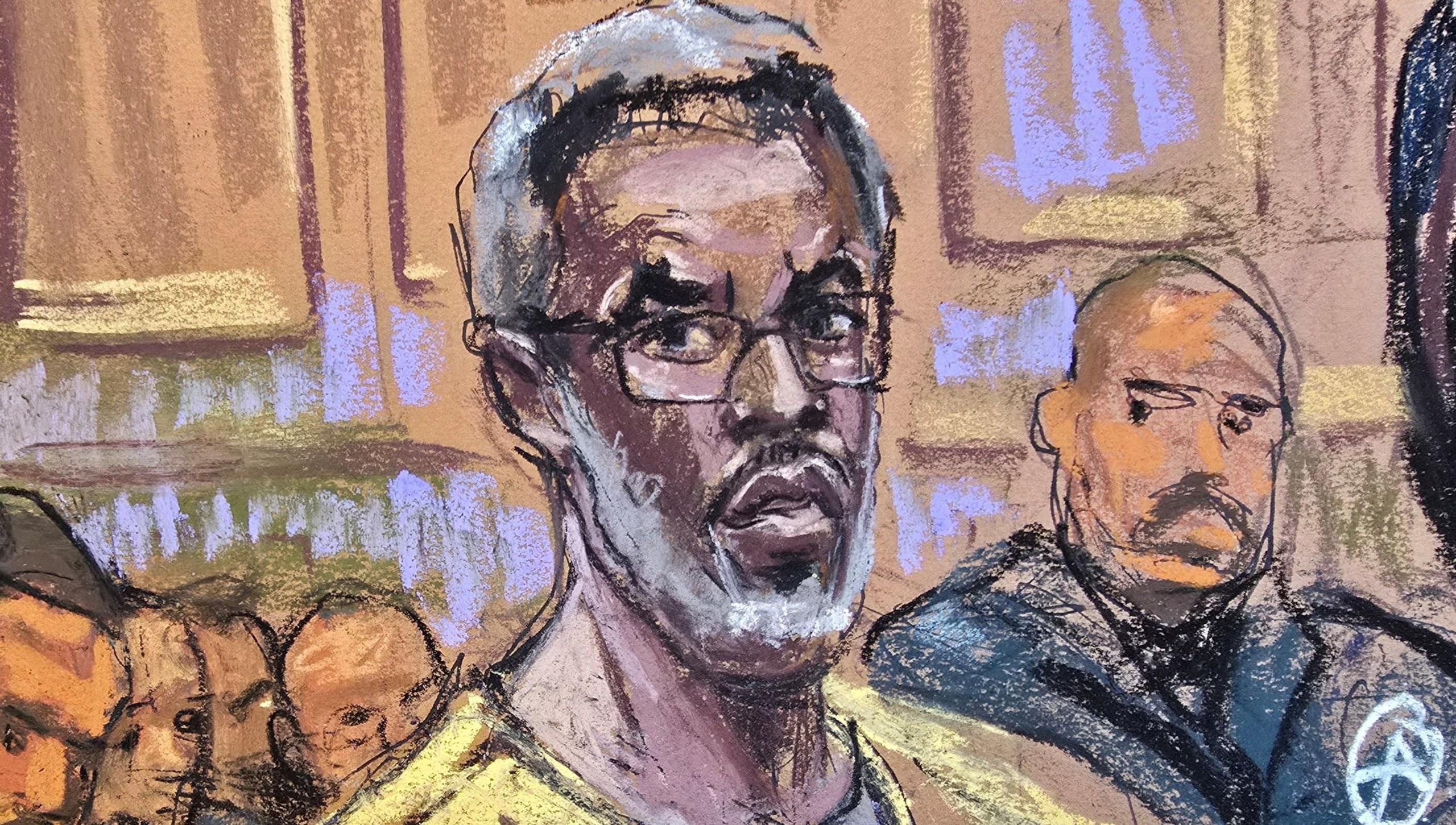How much time could Diddy spend in prison?

Sean "Diddy" Combs in court in September
- Published
A year after federal prosecutors unveiled a sweeping criminal case against Sean "Diddy" Combs and months after a trial that revealed shocking details of violence and his private life, the convicted music mogul will learn his sentence.
He could face up to two decades behind bars, but his attorneys are battling for a more lenient sentence that could see Combs freed in a matter of weeks – or acquitted.
In July, a jury acquitted him of the most severe charges: racketeering and sex trafficking. But he was found guilty of two counts of transportation to engage in prostitution. Each count carries a maximum sentence of 10 years in prison.
Prosecutors have asked for a minimum of 11 years, but Combs' lawyers have argued that such a sentence would be a dramatic overreach.
"In plain terms, prosecutors want to see Diddy defined by the worst-case math, while the defence wants the judge to cut through it and impose something far lighter," said Todd Spodek, a New York attorney who once represented fake heiress Anna Sorokin.
'It's like bargaining for anything'
Federal judges ultimately decide on a final punishment and they have flexibility within guidelines - so the defence and prosecution will spend much of Friday arguing in court over Combs' sentence.
"It's like bargaining for anything," Mr Spodek said. "There's the benchmark, there's the number in the middle, and it goes up and goes down."
A probation office, which oversees offenders during and after incarceration, separately recommended five to seven years in prison, according to Combs' court filings.
But "ultimately, the judge decides," Mr Spodek said.
A major question looming over the sentencing is how much Combs' conduct towards the victims will factor into New York federal judge Arun Subramanian's thinking.
While Combs will be sentenced on two prostitution charges, prosecutors have reminded the judge of his past behavior, which came out during testimony and included violence, domestic abuse, and illegal drug use.
Combs, they argue, is "unrepentant."
"The defendant tries to recast decades of abuse as simply the function of mutually toxic relationships," prosecutors wrote in a 29 September filing. "But there is nothing mutual about a relationship where one person holds all the power and the other ends up bloodied and bruised."
His most high-profile victim, Cassandra Ventura, submitted a letter to the judge ahead of sentencing asking for justice and accountability. She said she moved her family away from New York City fearing retaliation.
"As much progress as I have made in recovering from his abuse, I remain very much afraid of what he is capable of and the malice he undoubtedly harbours towards me for having the bravery to tell the truth," Ms Ventura wrote.
Combs' team, however, has portrayed him as a reformed man who should receive a sentence of no more than 14 months in prison. His time in jail while the case played out would count towards that total, meaning if the judge agrees, Combs would soon walk free.
A longer sentence, Combs' lawyers argue, would unfairly keep him from his seven children and elderly mother, and prevent him from receiving mental health care. In court filings, lawyers described Combs' incarceration as "life changing, productive, and a testament to his desire to return to his family and community and lead the best life possible."
Judges can consider history, character, contributions to society, and previous criminal record during sentencing.
Combs' lawyers cited examples of his business and the music success as evidence of his contributions. His team also submitted testimonials from family members, and other detainees at the jail where Combs is held.
In the event that Combs receives an unfavourable sentence, his legal team could appeal the judge's decision to a higher court.
Watch: The BBC's Nomia Iqbal looks at what comes next after Diddy verdict
Still seeking acquittal
Combs' lawyers are making an additional bid to free him at the sentencing hearing: challenging the use of the anti-prostitution law that forms the basis for the charges and conviction.
Last week, Combs' lawyers asked the judge to consider an acquittal or new trial, citing objections over the Mann Act.
The 1910 law has a controversial history. It originally was an anti-interstate sex law that included a sweeping immorality clause; in practice, it could be applied broadly, covering interracial marriage and affairs. In the 1980s, Congress modernised it, and the law now forms a foundation for federal prostitution and sex trafficking cases. Most recently, prosecutors used it in cases against singer R Kelly, and Jeffrey Epstein's associate Ghislaine Maxwell.
Combs' lawyers argue Mann Act-related charges "should never have been brought" because the sexual encounters Combs engaged in were consensual, and they believe his conduct did not amount to "prostitution."
A Mann Act charge is "an easier case to make in a court of law than perhaps a trafficking conviction, which requires more elements," said Jessica Pliley, a historian at Texas State University and Mann Act expert.
Prosecutors, like the ones handling the Combs case, often pair them. "It's not an uncommon law," Professor Pliley said.
But prosecutors have reminded the judge of accounts from Ms Ventura and a woman referred to as Jane Doe. In filings, they recalled the women's testimony about participating in lengthy "freak-off" sessions with Combs and male escorts he requested, even when they felt coerced and suffered physically from the lengthy encounters.
"Defendants who perpetrate violations of the Mann Act involving such violence and fear regularly face significant penalties," prosecutors wrote in a sentencing memo.
"The defendant should be no exception—particularly when his history and characteristics demonstrate years of abuse and violence."